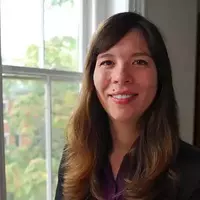Aligning Institutional Capacity and Incentives for Engaged Research and Public Impact
 Kacy Redd, Association of Public and Land-grant Universities
Kacy Redd, Association of Public and Land-grant Universities
 Emily Ozer, University of California-Berkeley
Emily Ozer, University of California-Berkeley
 Rich Carter, Oregon State University
Rich Carter, Oregon State University
 Benjamin Olneck-Brown, The Pew Charitable Trusts
Benjamin Olneck-Brown, The Pew Charitable Trusts
University institutional change efforts have increasingly focused on supporting, recognizing, and rewarding engaged research– processes by which policymakers, researchers, community leaders, and others work together to identify evidence needs, bring together different kinds of knowledge and expertise, and use evidence to accomplish shared goals – and other forms of societally impactful scholarship. Ongoing projects aimed at building institutional capacity for this work include aligning faculty hiring and promotion policies with the needs of engaged research, development of professional homes for the engaged research workforce, and innovations in metrics to assess research impact. Increasingly, a diverse generation of scholars is entering academia with hopes of affecting societal change, including through policy or community partnerships, and this movement to broaden institutional capacity meets the need to support and reward these scholars. A growing number of organizations are building national coalitions to understand institutional change efforts in this space and support universities in implementing promising models of supporting engaged and societally impactful research. This panel brings together representatives of several of those efforts, including an engaged scholar who has led institutional change efforts and is studying promising institutional change models, a representative of a national university association, and the principal investigator of a national coalition working to value societal impact in higher education. Panelists will discuss lessons learned from their efforts and promising opportunities for coordination across the academic ecosystem to drive progress. The panel is hosted by The Pew Charitable Trusts; Pew has convened the Transforming Evidence Funders Network, a cross-disciplinary network of research funders working together to address structural barriers for a more effective, equitable, and impactful research enterprise.
Program
The symposium will take the form of a panel with ample audience engagement. A representative from The Pew Charitable Trusts, which has been convening funders and other leaders working on broadening institutional incentives and capacity for engaged research, will introduce the session and the shared priorities of the presenters (approx. 5 minutes). Each panelist will then give an overview of their work connecting initiatives that drive institutional change for engaged research and public impact (approx. 20 minutes). The moderator will offer follow-up questions as needed to draw connections among the panelists' initiatives (approx. 10 minutes). The balance of the time will be dedicated to audience engagement and Q+A (approx. 20 minutes). To maximize this time, the moderator will offer questions for audience members to reflect on, including how attendees' institutions have addressed these issues of faculty incentives and institutional capacity, and what opportunities attendees' see for cross-institution collaboration on these and related issues. At the close of the session, panelists will offer final reflections (approx. 5 minutes).
Presentation Media
Aligning Institutional Capacity and Incentives for Engaged Research and Public Impact (PowerPoint 2007 (.pptx) 28.3MB Jun8 23)
Google Slides: Aligning Institutional Capacity and Incentives for Engaged Research and Public Impact
Aligning Institutional Capacity and Incentives for Engaged Research and Public Impact (GoogleDoc)
